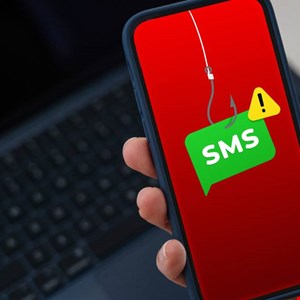- Cisco capitalizes on Isovalent buy, unveils new load balancer
- I upgraded to Android 16 - here's what I love and what's still missing
- You can get a free Samsung Galaxy S25 Plus from T-Mobile - how to qualify for the deal
- I replaced my Pixel 9 Pro for this $750 Android phone - and didn't regret it
- This is the most travel-friendly charger I've tested, with support for over 190 countries
UK Police Arrest Two People for Smishing via Fake Cell Tower

UK police have arrested two individuals accused of sending thousands of SMS phishing (smishing) messages, posing as banks and other official organisations.
In a first in the UK, the duo is believed to have used a homemade ‘SMS blaster,’ an illegitimate telephone mast to send messages that bypass mobile phone networks’ systems that are in place to block suspicious text messages.
The first arrest was made on May 9 in Manchester and the second on May 23 in London.
The latter individual is Huayong Xu, 32, who lives in Croydon, South London. He was charged with possession of articles for use in fraud and remanded in custody.
He will appear at Inner London Crown Court on June 26.
The other arrested individual has been released on bail.
In a City of London Police statement, Temporary Detective Chief Inspector David Vint, head of the Dedicated Card and Payment Crime Unit (DCPCU), said: “The criminals committing these types of crimes are only getting smarter, working in more complex ways to trick unknowing members of the public and steal whatever they can get their hands on. It is vital we work with partners to help prevent the public from falling victim to fraud.
“Remember, a bank or another official authority will not ask you to share personal information over text or phone. If you think you have received a fraudulent text message, report it by forwarding it to 7726.”
Officers from the DCPCU worked on this case with mobile network operators, UK telecom regulator Ofcom and the UK National Cyber Security Centre (NCSC).

